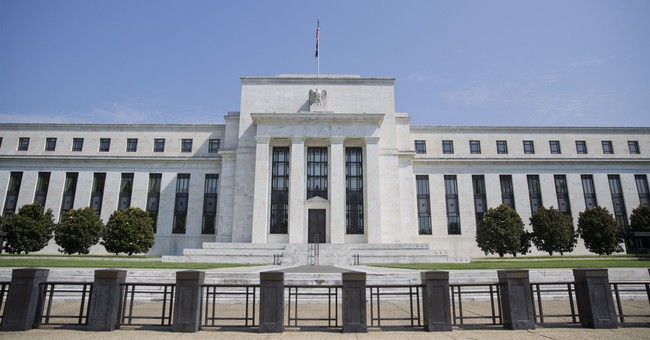When the Fed dramatically expanded its balance sheet after
the latest recession began, many economists expected to meet high inflation barreling down the road. Fear of inflation helped send the price of gold
to $1,800 per ounce. Instead, inflation has been very mild and
Europe is flirting with deflation. What happened?
Of course, Austrians needed Hayek and Mises to remind us that
the quantity theory of money shouldn't be taken mechanically. Someone has to borrow
money and spend it in order for lower interest rates or QE to increase the
money supply. The state borrowed and spent in the hyperinflation in Germany during
the 1920’s. And the US
government borrowed and spent during the 1960’s and 1970’s to create high
inflation.
Today, the government borrows to maintain spending while
spending increases are relatively small due to high existing debt and political
opposition to increasing debt. Businesses aren’t borrowing because high taxes
and massive regulation raise the profit bar to pole vaulting levels. So people
are borrowing to invest in assets such as real estate and the stock market or
exporting newly created money by investing overseas or buying imported goods.
Basel regulations are still incentivising banks to
channel the flow of new lending towards property-related sectors. A repeat of
what happened, again and again, since the end of the 1980s, when Basel was first
introduced. I cannot be 100% certain, but I think this is the first time in
history that so many housing markets in so many different countries experience
such coordinated waves of booms and busts.
So
far we’ve had two main waves: the first one started when Basel regulations were first implemented in
the second half of the 1980s. It busted in the first half of the 1990s before
growing so much that it would make too much damage. The second wave started at
the very end of the 1990s, this time growing more rapidly thanks to the low
interest rate environment, until it reached a tragic end in 2006-2008. It now
looks like the third wave has started, mostly in countries where house prices
haven’t collapsed ‘too much’ during the crisis.
The Basel regulations require
banks to hold more reserves for riskier loans. The safest loans go to
governments, which carry a zero risk according to Basel. Real estate carries the next lowest
risk. Business loans are among the riskiest and force banks to keep more cash
idle.
One
of the latest casualties of the
Basel
regulations has been the Bank of England’s
Funding for Lending Scheme. The scheme set
aside funds for loan to small and medium enterprises, but as
Julien writes,
Since the inception of the scheme, business
lending has pretty much constantly fallen… According to the FT: Figures from the British Bankers’
Association showed net lending to companies fell by £2.3bn in April to £275bn,
the biggest monthly decline since last July.
The Basel accords pretty much
guarantee that lending in the future will go mainly to governments and real
estate, not so much to businesses. Most governments in the West are trying to
limit spending, so for the foreseeable future we can expect repeated real
estate and stock market bubbles and little CPI price inflation. That makes
bonds a better prospect when real estate and the stock market are in bubble
territory, but it also makes gold less attractive.
Of
course, I could be wrong, so always hedge.






